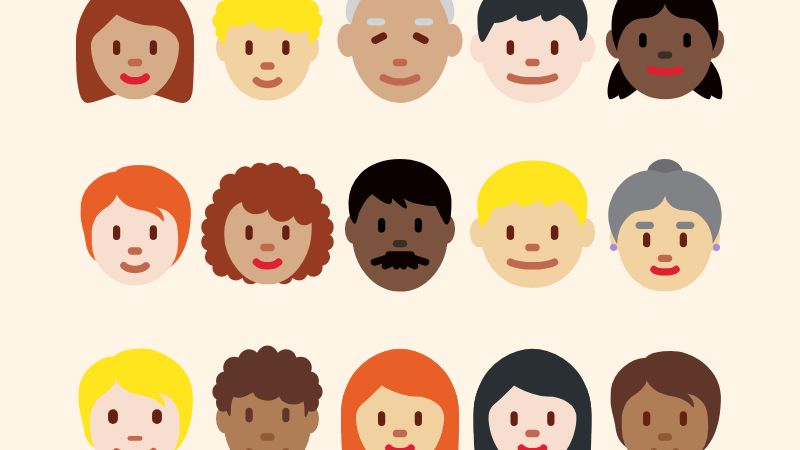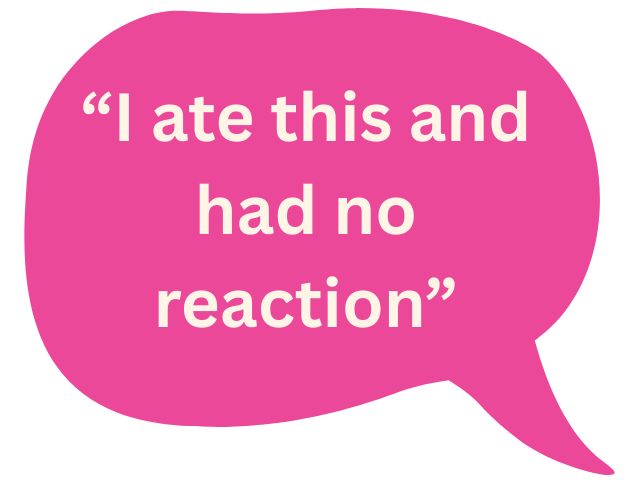Every Coeliac is Sensitive
Why gluten sensitivity isn’t a scale for those with coeliac disease


The gluten free community is a great space for sharing knowledge, but it can also be a source of misinformation. Many comments - though well-intentioned - can be misleading or even harmful. This guide aims to clarify why certain phrases can cause confusion and how they contribute to misunderstanding coeliac disease.
If you find yourself using any these phrases, take a moment to reflect. Are they truly helpful, or might they be causing harm?
⛔ There’s No Such Thing as a 'Sensitive Coeliac'
A common phrase that pops up in gluten free spaces is:
“I’m a very sensitive coeliac and I’m fine with…”
This is often followed by mention of a product that contains gluten, carries a 'may contain' warning, or even something that is gluten free.
Whilst this might be relevant in discussions around non-coeliac gluten sensitivity, like a gluten intolerance, it can be misleading when used in the context of coeliac disease. That's because coeliac disease does not have varying thresholds of gluten tolerance. Any amount of gluten - even a crumb - triggers an autoimmune reaction and causes harm, whether or not symptoms are visible.
Yes, some people experience more obvious symptoms. But the absence of symptoms does not mean the body is unaffected.
❤️🩹 Symptoms Vary - But Damage Still Happens
Some people with coeliac disease react strongly with symptoms like cramping, vomiting, or diarrhoea. Others may experience fatigue, brain fog, or no no noticeable symptoms at all. Even more confusing: symptoms can change over time depending on factors like stress, overall health, and diet.
But regardless of symptoms, intestinal damage still occurs. This makes is particularly risky to rely on how you feel to determine if something is safe.
People who are newly diagnosed may see these comments and incorrectly believe they can safely eat foods as long as they don't feel unwell. But damage can happen silently - and once symptoms or complications appear, significant harm may have already been done.
🤚🏼 Please Stop Saying This Phrase

It may seem innocent, or even helpful, but it's often misleading. Here's why:
1️⃣ When Talking About a Gluten Free Product:
If a product is gluten free (e.g. contains no gluten and has no ‘may contain’ warnings), there shouldn't be any expectation of a reaction. Saying "I had no reaction" can cause unnecessary doubt - it might imply that gluten free labels are unreliable or that others should be reacting.
2️⃣ When Talking About a Product With a ‘May Contain’ Warning:
These warnings exist to highlight cross-contamination risk. You might not react after eating it - but that could be down to luck, or a lack of outward symptoms. That doesn't mean the product is safe for others with coeliac disease.
Whether or not you choose to eat 'may contain' products is a personal decision. But it's important to make that decision based on informed risk - not on the assumption that no reaction equals no harm. It's also not helpful or safe to encourage others to do so based on your personal experience.
3️⃣ When Talking About a Product That Contains Gluten
If you knowingly eat gluten with coeliac disease, your body is being harmed - full stop. Even if you used to have symptoms and now you don't, your immune system is still reacting. Your body hasn't adapted. You're not cured.
👉🏼 For help on reading labels and identifying safe products, check out our helpful guides.
🤔 How These Statements Influence Others
These kind of comments can:
- Persuade others to eat unsafe products
- Justify personal choices
- Mislead others into thinking symptom-free equals safe
This is especially harmful for newly diagnosed individuals, who are still learning what's safe. It also contributes to the underdiagnosis of coeliac disease - when people assume they must have obvious symptoms to be affected.
It doesn't end with the gluten free community. When coeliacs say things like "I can eat this and be fine", it sends the wrong message to family, friends, and restaurants - people who might then take the condition less seriously, or cut corners when preparing gluten free food.
🆚 Coeliac Disease vs. Gluten Intolerance
Gluten intolerance (non-coeliac gluten sensitivity) is different from coeliac disease. If you are gluten intolerant, you can assess your personal tolerance levels - eating gluten may cause discomfort, but it does not lead to long-term damage.
Of course, many people with gluten intolerance choose to be just as strict as those with coeliac disease, depending on their symptoms - which can be just as debilitating to live with. This decision is often based on quality of life and managing chronic discomfort, which is completely valid.
However, it's important to remember that the motivations are different: for coeliacs, even trace amounts of gluten trigger an autoimmune response and intestinal damage, regardless of how they feel. For those with gluten intolerance, symptoms (not internal damage) are the main indicator and driver for dietary choices.
🎯 Quick Recap:
Before saying "I'm a sensitive coeliac" or "I didn't react to this", ask yourself:
❓ Does this help clarify or confuse?
❓ Could this be misunderstood by someone newly diagnosed?
❓ Am I trying to justify a personal choice - and at what cost?
Every coeliac is sensitive - because every exposure causes harm, regardless or symptoms.
When we prioritise clarity over comfort and facts over feelings, we help keep the gluten free community a safer and more supportive place.